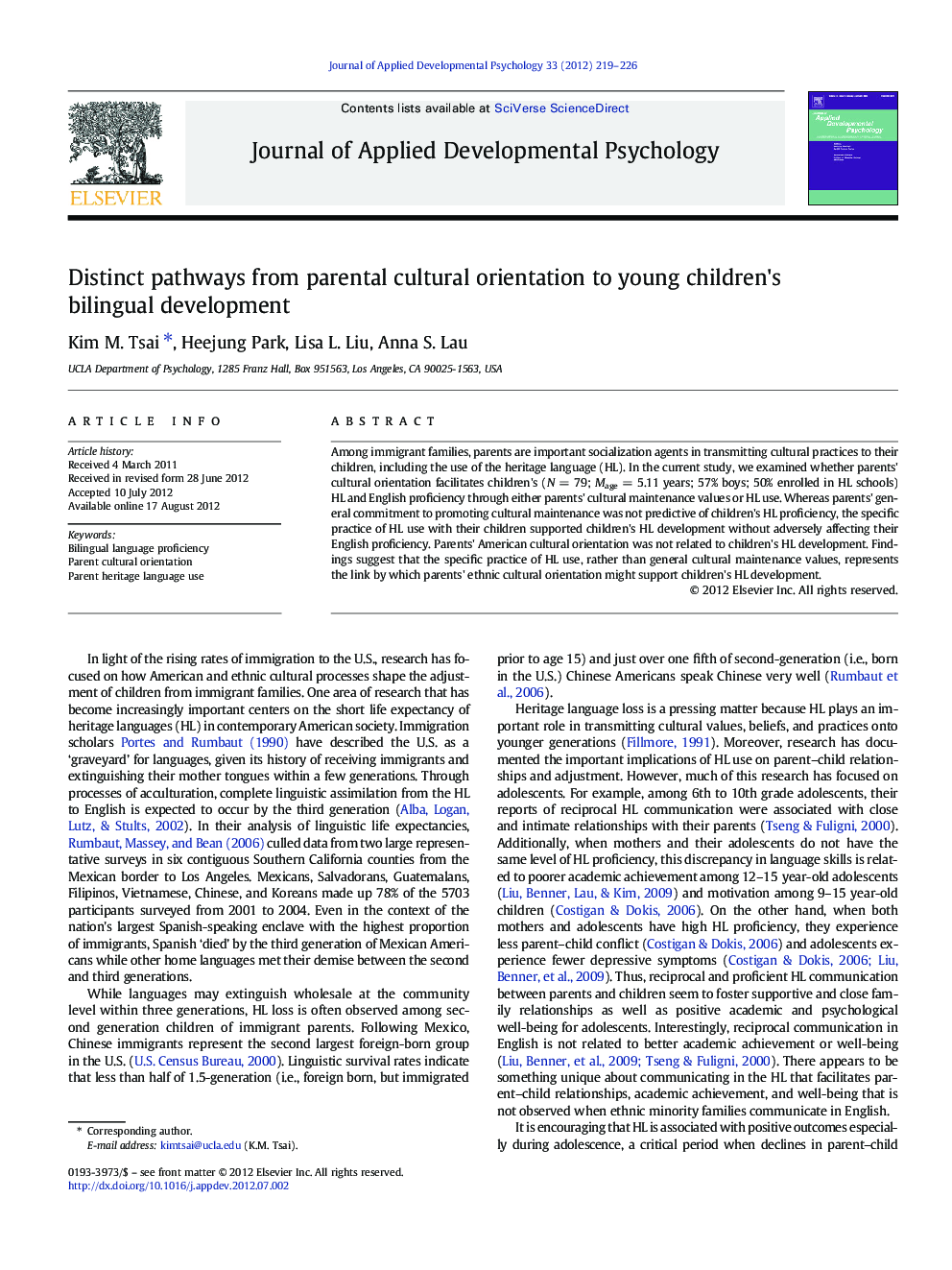| Article ID | Journal | Published Year | Pages | File Type |
|---|---|---|---|---|
| 359707 | Journal of Applied Developmental Psychology | 2012 | 8 Pages |
Among immigrant families, parents are important socialization agents in transmitting cultural practices to their children, including the use of the heritage language (HL). In the current study, we examined whether parents' cultural orientation facilitates children's (N = 79; Mage = 5.11 years; 57% boys; 50% enrolled in HL schools) HL and English proficiency through either parents' cultural maintenance values or HL use. Whereas parents' general commitment to promoting cultural maintenance was not predictive of children's HL proficiency, the specific practice of HL use with their children supported children's HL development without adversely affecting their English proficiency. Parents' American cultural orientation was not related to children's HL development. Findings suggest that the specific practice of HL use, rather than general cultural maintenance values, represents the link by which parents' ethnic cultural orientation might support children's HL development.
► Parental cultural orientation is related to their cultural maintenance and heritage language (HL) use. ► Only parental HL use, and not cultural maintenance, is predictive of children's HL proficiency. ► Parental cultural factors and HL use does not adversely affect children's English proficiency. ► The specific practice of parent's HL with children is critical to young children's HL development. ► Cultural maintenance values, more generally, are not strongly linked to young children's HL skills.
